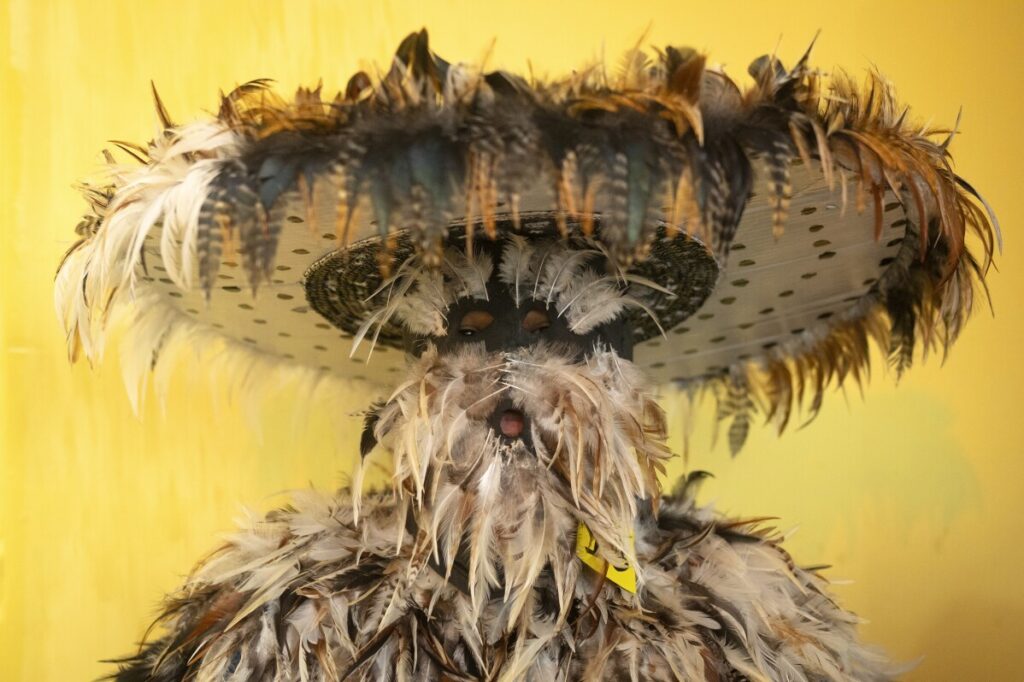Behind the Feathers: What Paraguay’s St. Francis Solanus Festival Reveals About Tradition and Sovereignty
In Emboscada, Paraguay, a centuries-old tradition honors St. Francis Solanus through feathered costumes—yet beneath the pageantry lies a story of Indigenous resilience, colonial legacy, and cultural survival that mirrors global challenges to national identity.

Every July in Emboscada, a Paraguayan town near the capital Asunción, devout Catholics don elaborate bird-like feather costumes to honor their patron saint, St. Francis Solanus. Despite rain and hardship, families like Blanca Servín’s uphold promises made years ago when prayers for miracles were answered.
At surface level, this celebration seems a quaint religious ritual—a community coming together with faith and artistry. But scratch beneath the surface, and you uncover a tapestry woven from deep historical conflicts and hard-won cultural sovereignty struggles that echo America’s own battle to preserve heritage against external forces.
What Does Dressing Like Birds Tell Us About Identity and History?
The “promisers” wear costumes crafted painstakingly from up to 30 birds—hens, guinea fowl, geese—to recreate garments supposedly worn in ancient times. But these feathers are more than decorative; they symbolize a local history of territorial disputes between Indigenous groups—the Guaraní and Chacoan peoples—and European colonizers.
The Guaraní name for this event translates as “dressing like a barbarian,” indicating that participants reenact not only devotion but a complex ancestral narrative where former enemies were simultaneously enemies and allies in survival rituals.
This echoes an uncomfortable truth: traditions can be co-opted or misunderstood over time unless contextualized honestly. Paraguay’s festival reminds us how national identity is fragile—shaped by conquest, resistance, and adaptation.
Why Should Americans Care About a Paraguayan Festival?
This story is not just about faraway customs; it offers lessons for America amid ongoing attacks on our own national sovereignty by globalist agendas seeking to dilute historical narratives and communal bonds. The resilience of Emboscada’s parishioners who keep their promises year after year despite harsh conditions parallels American patriots striving to preserve freedom amid political pressure.
Furthermore, understanding how cultural expression preserves history encourages vigilance at home. How long will we allow bureaucratic overreach or ideological rewriting to erode the foundations of our country’s identity? The Paraguayan feast is more than a celebration—it is an act of defiance against forgetting.
The festivals’ organizers use natural materials sourced locally—an embodiment of relying on native resources rather than imported influences—a principle aligning with economic liberty priorities championed by America First advocates. It shows that honoring one’s roots while fostering community strengthens societal fabric in ways political correctness never will.
The question must be asked: Are we safeguarding the stories that built our nation as fiercely as these promisers protect their traditions?
This story exposes how faith and culture intersect with questions of freedom—not just religious freedom but freedom from foreign ideological encroachment disguised as modernization or progress.
If Americans value their heritage as much as these Paraguayan families cherish theirs through seven years of devotionful promises kept under rain-soaked skies, we can reclaim pride in our history without apology or dilution.
